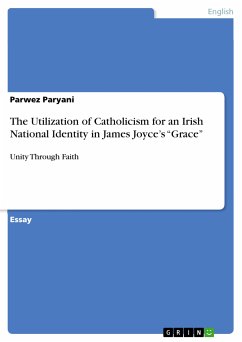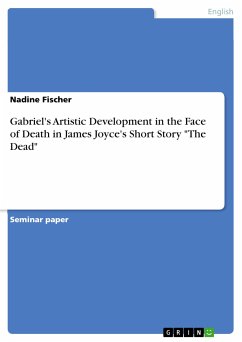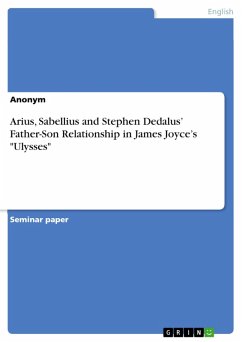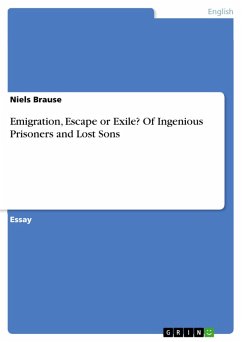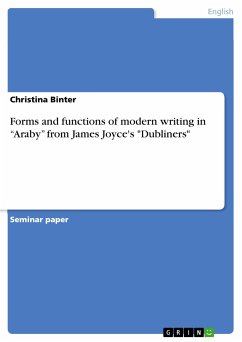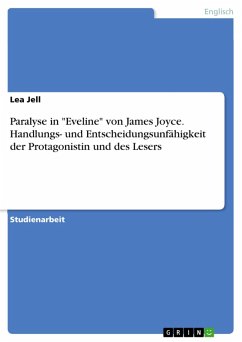Essay from the year 2013 in the subject English Language and Literature Studies - Literature, grade: 1,3, University of Trier, course: James Joyce: Dubliners, language: English, abstract: James Joyce's short story "Grace", published amongst a collection of various other socio-critical stories about the life in Dublin, offers a subliminal insight into the influential role of the Catholic Church in Irish communities of the late 19th and early 20th century. At first glance, "Grace" could simply be labelled as a mocking satire of disingenuous Irish believers using Catholicism merely for the purpose of social integrity. A further look although unfolds a deeper lying, much more sophisticated layer of criticism addressing the impact of the Church as a surrogate authority justifying nationalist movements in the Irish society. The Irish, in strong need of a common identity that was clearly distinguishable from alien forces, left a vacuum for clergymen to fill and thus exchanged Irish Gaelic traditions with Catholic faith and its dogmas. Nationalists utilized this new established bond to unify the Irish for political purposes, hence drew a psychological demarcation line between Ireland and the British invaders. Interpreting certain parts of "Grace", it is arguable that Joyce could have held the Church's worldly ambitions responsible for the political stasis of the Irish. The aim of this paper is to find out whether this theory can be validated or not. Whilst referring to historical evidence , two passages of "Grace" will be examined to investigate how and why Joyce displayed features of Catholicism in the daily routine of the Irish.
Dieser Download kann aus rechtlichen Gründen nur mit Rechnungsadresse in A, B, BG, CY, CZ, D, DK, EW, E, FIN, F, GR, HR, H, IRL, I, LT, L, LR, M, NL, PL, P, R, S, SLO, SK ausgeliefert werden.

